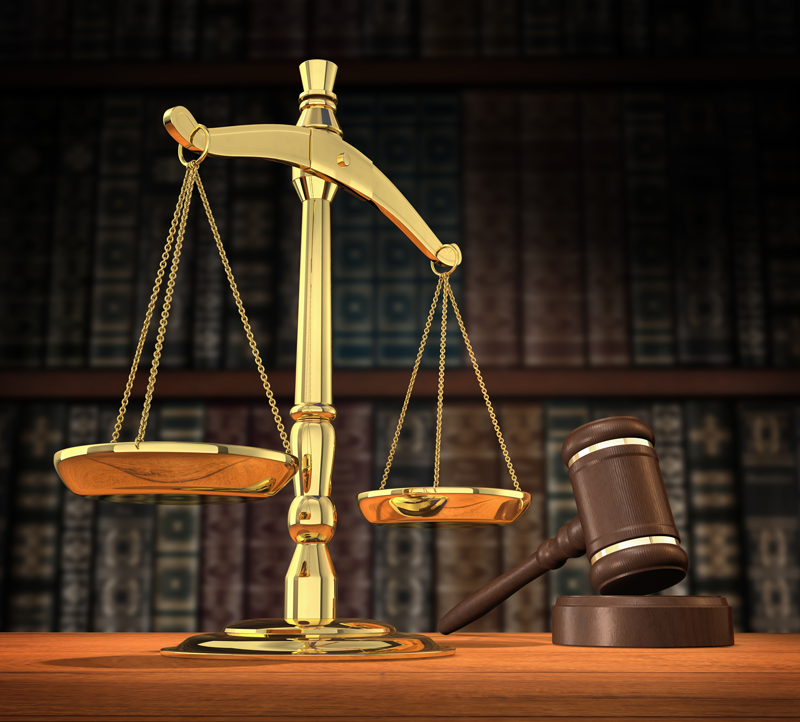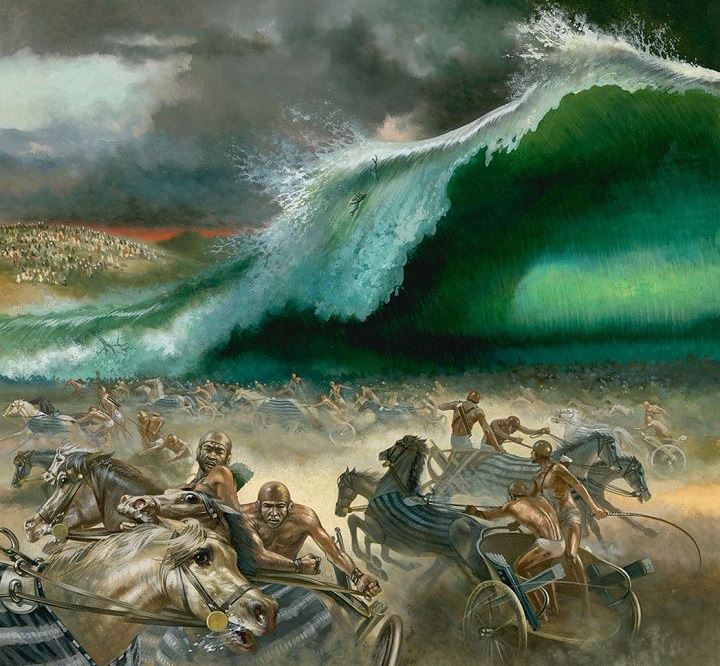The King Who Causes Death

As is known, the first three berachot of the Shemoneh Esreh form a set which relate the praise of Hashem for His three fundamental attributes of chesed (love, giving and kindness), gevurah (justice, strictness and self-restraint) and tiferet (beauty, harmony, truth, mercy and holiness). It is also known that these three berachot correspond to the uniquely perfected attributes of the three Patriarchs. Avraham exemplifies chesed, Yaakov exemplifies tiferet (as written in Michah 7:20 — תִּתֵּן אֱמֶת לְיַעֲקֹב חֶסֶד לְאַבְרָהָם [You give truth to Yaakov and chesed to Avraham]), while Yitzchak exemplifies gevurah (just think of his willingness to be bound on the altar to fulfill the will of Hashem). Even so, there is great overlap between this neat delineation throughout the berachot. To give two examples, we mention חַסְדֵי אָבוֹת (the chesed of the Patriarchs) in the first berachah, not just חֶסֶד אַבְרָהָם (the chesed of Avraham), and we mention chesed and rachamim [mercy] in the second berachah with the words מְכַלְכֵּל חַיִּים בְּחֶסֶד מְחַיֵּה מֵתִים בְּרַחֲמִים רַבִּים (You sustain the living with chesed and you resurrect the dead with a lot of rachamim).
Let’s take a closer look at the second berachah. Although it is called ‘Gevurot’, which indicates that its primary theme deals with praising Hashem for His attribute of gevurah, this berachah doesn’t seem to contain much content that actually focuses on gevurah itself. Let’s investigate.
We begin the berachah with these words: אַתָּה גִבּוֹר לְעוֹלָם אֲדֹנָ-י מְחַיֶּה מֵתִים אַתָּה רַב לְהוֹשִׁיעַ (You are mighty forever, Adon-ai; You resurrect the dead, abundantly able to save). This doesn’t sound like it has anything to do with gevurah. True, we refer to Hashem as a gibbor, a mighty champion, but this is hardly a term we would choose to describe someone who deals out strict justice on the one hand or who practices self-restraint on the other hand. Of all of the great heroes in our history, there is only one individual who is called by the title ‘Gibbor’, and that’s Shimshon, and in spite of his tremendous individual heroism, self-restraint doesn’t seem to be one of his shining attributes like it was with Yitzchak. Not only that, but resurrecting the dead and bringing salvation don’t sound much like strict justice or self-restraint either. It sounds more like compassion and kindness. So you have to admit, these are very odd words with which to begin a berachah that is supposed to deal with gevurah.
Then we praise Hashem because He מְכַלְכֵּל חַיִּים בְּחֶסֶד מְחַיֵּה מֵתִים בְּרַחֲמִים רַבִּים (sustains the living with chesed, resurrects the dead with a lot of rachamim). As already mentioned, this statement seems to praise Hashem for His attributes of chesed and rachamim, which are not at all the same as gevurah.
Next, we say סוֹמֵךְ נוֹפְלִים וְרוֹפֵא חוֹלִים וּמַתִּיר אֲסוּרִים וּמְקַיֵּם אֱמוּנָתוֹ לִישֵׁנֵי עָפָר (You support the fallen, heal the sick, release the bound and fulfill His faithfulness to those sleeping in the dust). Once again, these are mighty acts in the classical way of understanding mighty, but they are mighty in the sense of rachamim, not mighty in the sense of gevurah. But then we seem to get to the point of this berachah and ask the important question, מִי כָמוֹךָ בַּעַל גְּבוּרוֹת וּמִי דּוֹמֶה לָּךְ (Who is comparable to You, O Master of Gevurot, and who is like You?). Finally we mention gevurah. Hashem is, after all, the Master of Gevurot, but it seems that we have been praising Him as Master of Rachamim or Master of Chesed all along. So this question in the berachah seems out of place. It seems like a non sequitur. It doesn’t appear to follow the topic up to this point. Where are the words praising Hashem for His gevurah up to this point? There doesn’t seem to be any. So this is very, very perplexing.
What do we say next? מֶלֶךְ מֵמִית וּמְחַיֶּה וּמַצְמִיחַ יְשׁוּעָה (O King Who causes death, and gives life and causes salvation to sprout). The key to the entire berachah is right here: מֶלֶךְ מֵמִית (King Who causes death). True, He also gives life and brings forth salvation (which again sound like compassionate, kind things to do), but He also is ‘King Who causes death.’ Without any doubt, we have come to gevurah. A King Who causes death is a King who executes justice. Such a King exhibits the attribute of strictness.
We can see that we’re making some progress, but we are still missing something significant because there are two outstanding issues that don’t seem to have any rationale behind them. First, how does ‘causing death’ demonstrate the attribute of self-restraint? And second, why would anyone praise a king for causing death?
The key to answering both of these questions can be found in the words of the prophet (Yeshayah 48:9): לְמַעַן שְׁמִי אַאֲרִיךְ אַפִּי וּתְהִלָּתִי אֶחֱטׇם־לָךְ לְבִלְתִּי הַכְרִיתֶךָ (For My name’s sake I am patient, and My praise is that I restrain My wrath for you so as not to destroy you). Patience and restraining wrath in the face of treachery and rebellion (see Hashem’s claim against the House of Yaakov in the previous verse) is exercising the attribute of gevurah. It is self-restraint. How so? Because Hashem reveals that He could have been stricter, i.e. He could have wiped out the people completely—not just death, but total annihilation!
Therefore, causing death is an aspect of gevurah on two counts. First, it exemplifies justice which is an aspect of gevurah because death came into the world only through sin (Bereshit 2:17): כִּי בְּיוֹם אֲכׇלְךָ מִמֶּנּוּ מוֹת תָּמוּת (For in the day you eat from it, you will surely die). But let’s think about this a little deeper. If Hashem would exercise 100 percent strict justice, i.e. complete gevurah, then death wouldn’t be the result. Total annihilation or obliteration would be the result. But whose purpose would that serve? Not Hashem’s. If Hashem decided to exact strict justice every time someone sinned, there would be no world. Hashem’s great project would never have gotten off the ground. Therefore, Hashem decided on death. The fact that Hashem decided on death rather than total annihilation indicates that He chose to exercise self-restraint. Even in gevurah, He holds Himself back. But understand. We are making a subtly important distinction. Self-restraint is not the same as rachamim; they are two very different attributes. Causing death is an exercise of self-restraint. Bring the dead back to life is an act of rachamim.
Now that we’re on the topic, let’s briefly think about this phenomenon of death. Death should not be viewed merely as a form of punishment. Sometimes it may be a form of punishment, but oftentimes, it is not. Instead of punishment, it may be an important step on the road to recovery, on a path for rehabilitating the soul through a purification process that takes place only after death, i.e. death being merely the removal of the soul from its physical body and the transfer of one’s conscious life from this physically opaque world to a more spiritually transparent world where truth is as apparent and undeniable as one’s own existence. G‑d doesn’t wish us to be exterminated forever. He wishes for us to be rehabilitated so that we have life forever.
We can now see how this berachah is truly one of praise, in that we are literally praising Hashem for the fact that He is responsible for death. He causes death. And that is an act of gevurah in the two aspects of justice and self-restraint.
That being said, why is it that so much of the berachah apparently praises Hashem for His compassion and kindness? The key word is ‘apparently’, because we are not, in fact, praising Hashem so much for His rachamim and chesed. If we just change our perspective a little bit, the true meaning of this berachah will come into focus. When we say that Hashem supports the fallen, we need to ask the inevitable question, Who caused the fall in the first place? When we say that Hashem heals the sick, we should ask ourselves, Who caused the person to get sick? When we say that Hashem releases the bound, we need to ask, Who was responsible for those being put into prison? The answer to all of these questions is the inevitable and obvious. It is Hashem. We are not praising Hashem for supporting, healing and releasing. We are praising Hashem for causing the fall, causing the sickness and causing the imprisonment. After all, if we can’t even open our mouths without Hashem doing it for us, i.e. consider the words we speak at the beginning of every Shemoneh Esreh from Tehillim 51:17 — אֲדֹנָי שְׂפָתַי תִּפְתָּח וּפִי יַגִּיד תְּהִלָּתֶךָ (Adon-ai open my lips so that my mouth will declare Your praise), then how much more falling down, getting sick or being thrown in prison, G‑d forbid. Nature is just one big illusion. Everything is an act of G‑d. Hashem does everything. True, Hashem causes the fall or the sickness or the imprisonment, but we deserve it because we sinned in so many different ways. And so we are responsible. In fact, if truth be told, we deserve much worse. Nevertheless, Hashem causes the physical reality to take place.
It is as we say each morning in יוֹצֵר אוֹר (Yotzer Or), the first berachah before the Shema: בְטוּבוֹ מְחַדֵּשׁ בְּכָל יוֹם תָּמִיד מַעֲשֵׂה בְרֵאשִׁית (In His goodness, He renews each day constantly, the act of creation). Constantly, on an ongoing basis, i.e. day by day, hour by hour, minute by minute, moment by moment. And that renewal includes us. Even we are being recreated or renewed constantly by an act of G‑d—literally. The universe (and our physicality within it) is much like a motion picture, a series of still frames with nothing in between. It’s just that the frames are moving by the cameras of our consciousness at trillions and trillions of frames per second that we don’t notice the quantum nature of this world. We experience only an illusion of continuity, and part and parcel with that, the illusion of physical cause and effect. But both of these phenomena are just illusions. ‘Reality’ is just an illusion. Hashem does everything, as it is taught (Berachot 33b): וְאָמַר רַבִּי חֲנִינָא הַכֹּל בִּידֵי שָׁמַיִם חוּץ מִיִּרְאַת שָׁמַיִם (R' Chanina said, Everything is in the hands of Heaven except the fear of Heaven).
So why did the Men of the Great Assembly write Gevurot in the way they did? Why didn’t they write it in a way that openly reveals the meaning of this berachah? We can suggest two reasons. First, since the reality of this truth may be a bit shocking, it is couched in hidden terms. Even so, they did write the undiluted truth with the statement, ‘O King Who causes death’. Second, when speaking of justice or din, it is good to speak of it with ‘refined language’, in oblique terms, so as not to give it unnecessary strength. This is in the aspect of that which was taught in the Yeshiva of R' Yannai (Pesachim 3a): לְעוֹלָם יְסַפֵּר אָדָם בְּלָשׁוֹן נְקִיָּה (A man should always speak with clean speech, i.e. euphemistically).
Now that we know that G‑d is the ‘King Who causes death’, we can go back and reread the entire berachah and understand exactly what we are saying. When you really internalize just how ‘heavy’ gevurah really is, don’t be surprised if it causes you to pray מְחַל לָנוּ מַלְכֵּנוּ כִּי פָשָׁעְנוּ (Pardon us, our Father, because we committed crimes) with a little more kavanah [focused concentration and intent].






